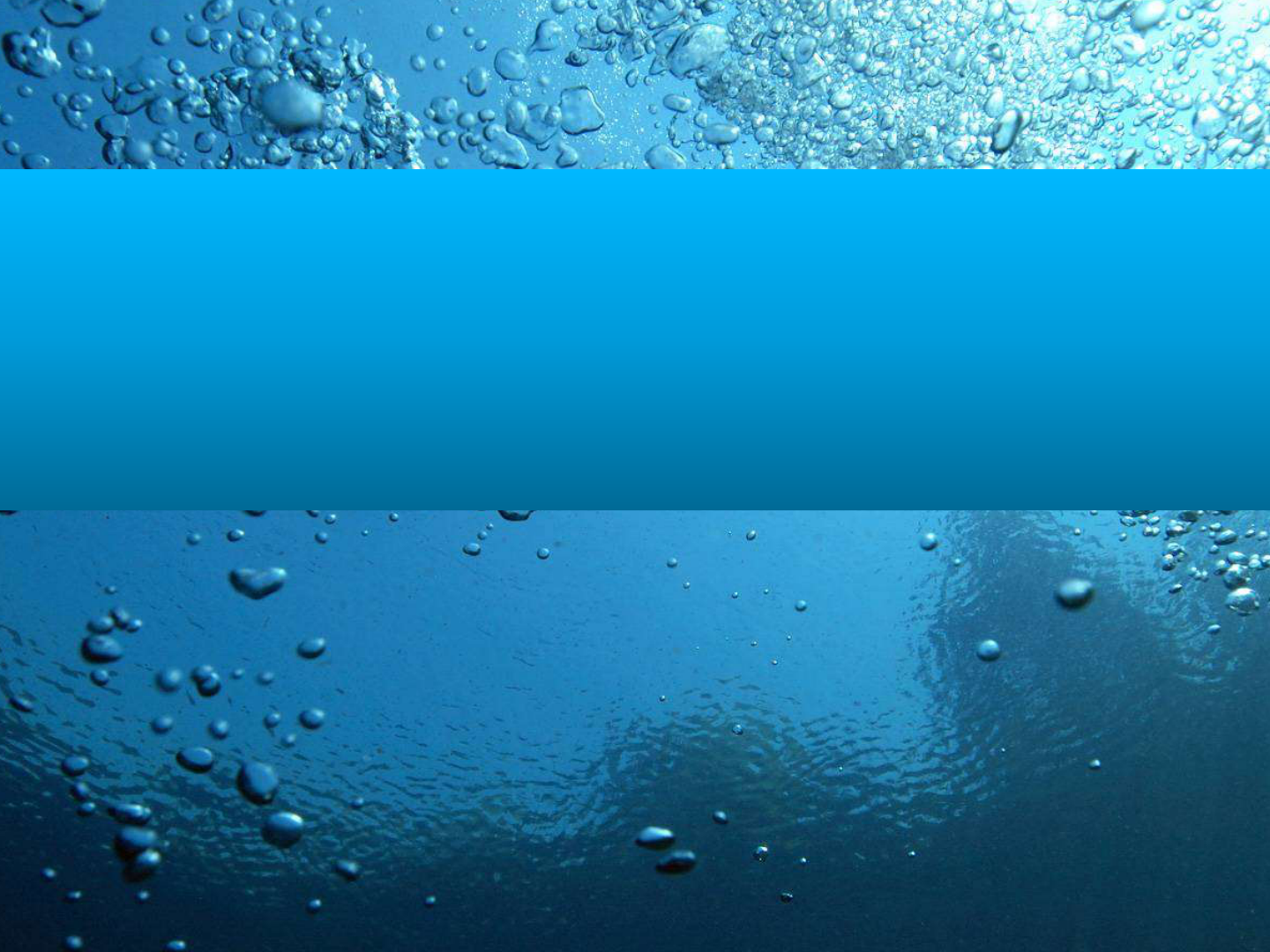
The New Jersey Fertilizer Law:
Tackling Nonpoint Source Pollution
Heather Saffert, Ph.D.
Clean Ocean Action
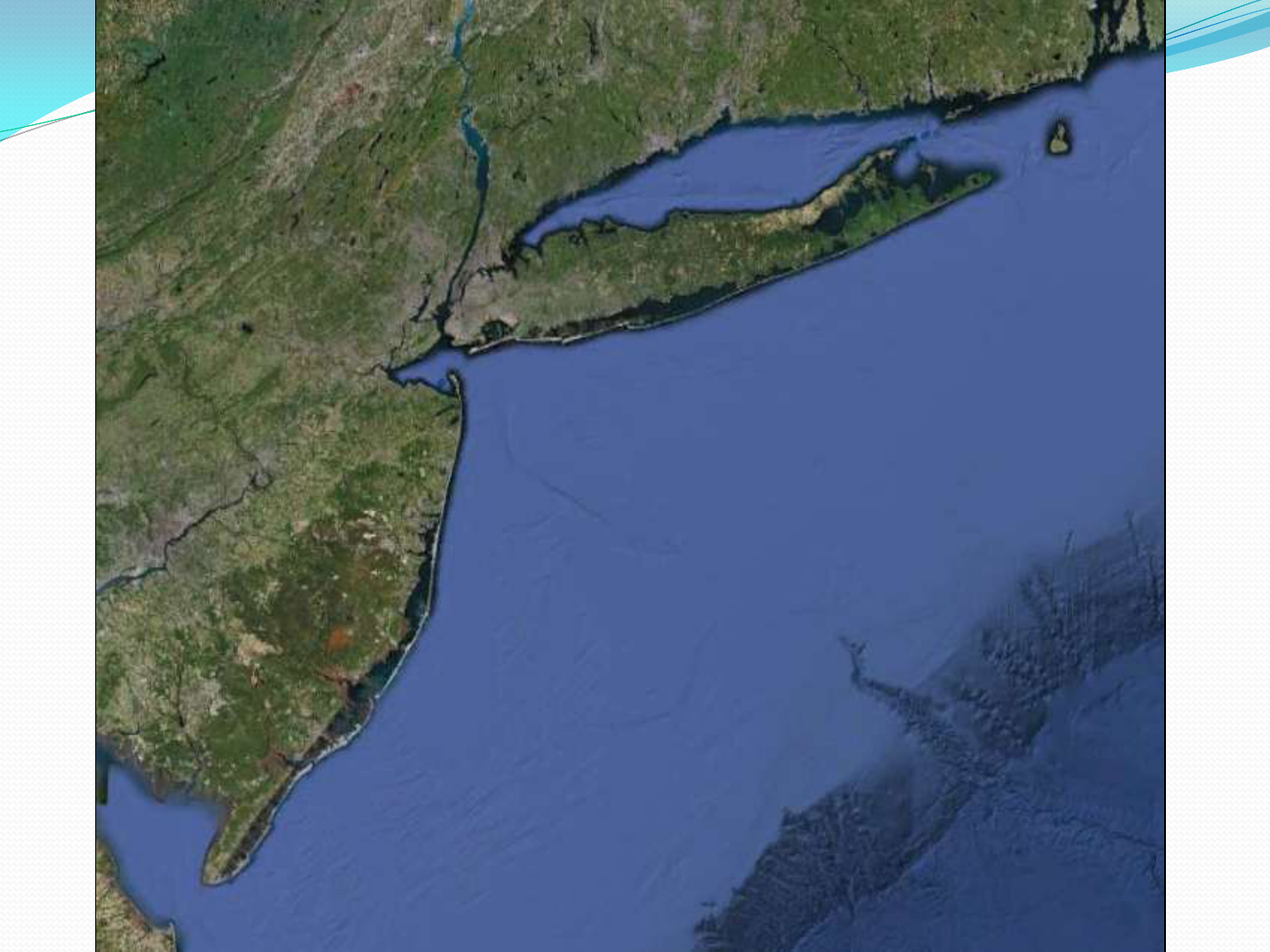
Clean Ocean Action’s Mission:
To improve the degraded water quality
of the coastal and marine waters
off the New Jersey/New York coast
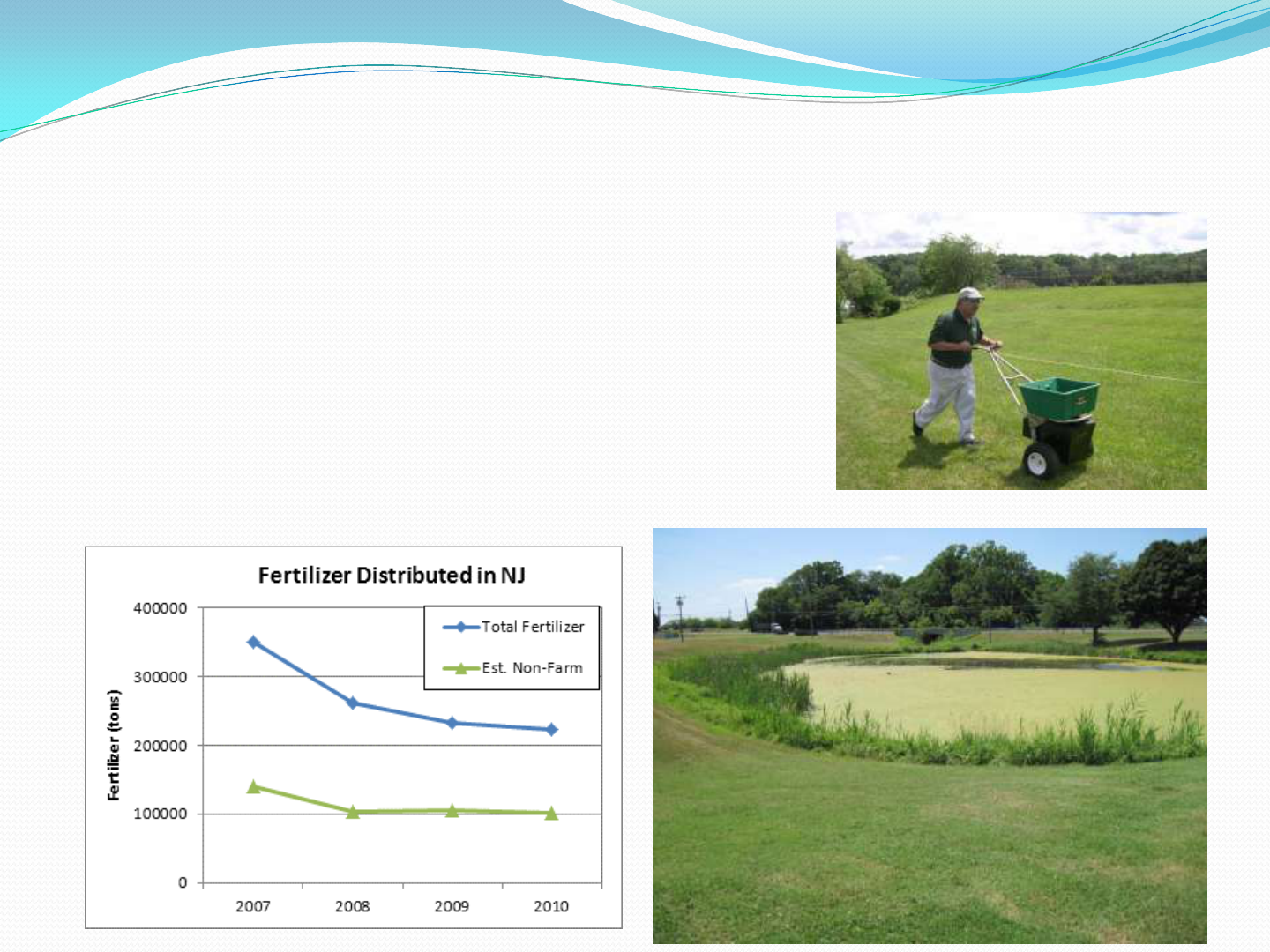
Why was the Fertilizer Law needed in NJ?
High fertilizer use
Studies of fertilizer in runoff
Many nutrient-related impairments
Water Quality/Ecological Health
Nutrient Problems
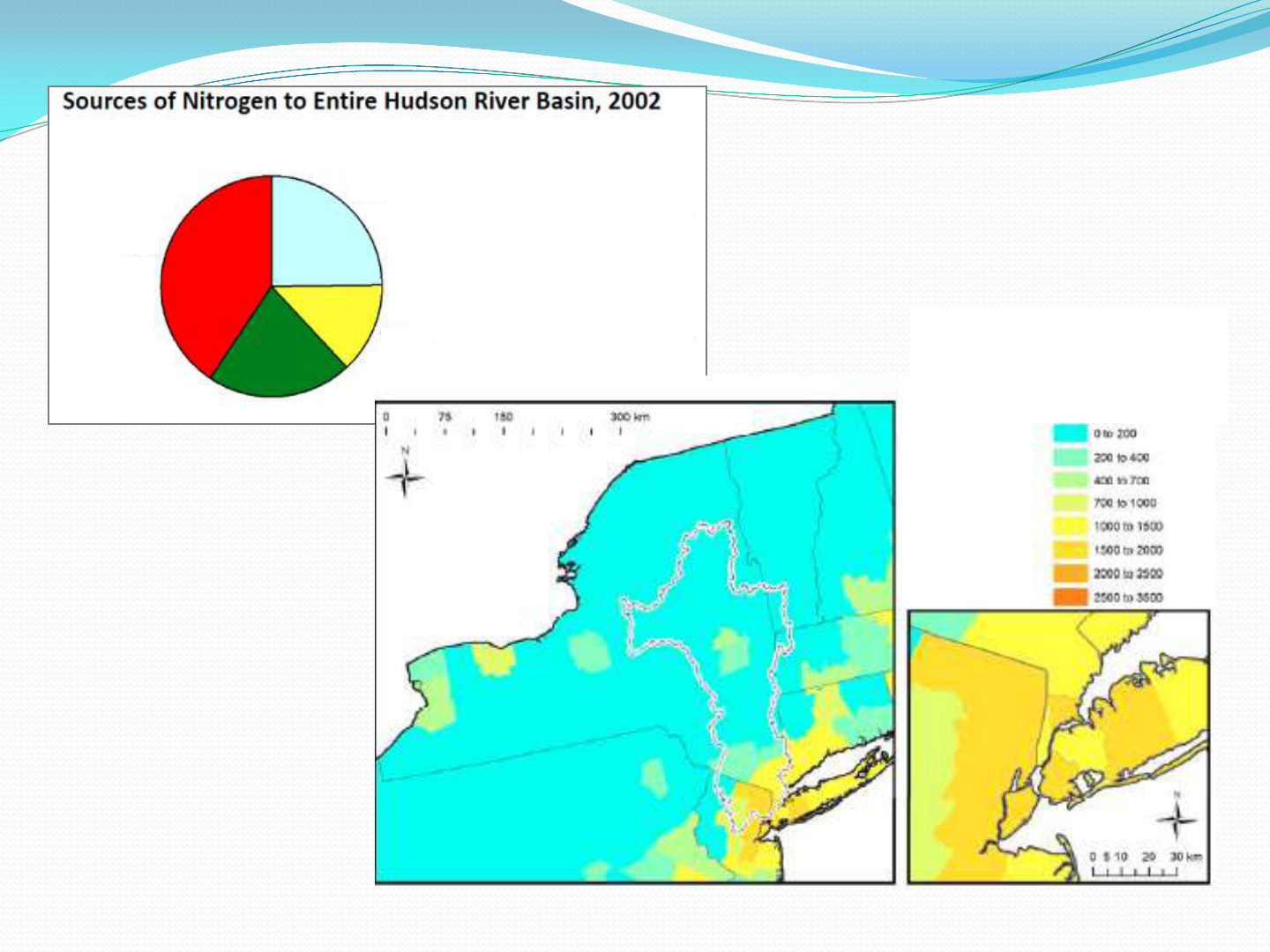
From Dr. Robert Howarth presentation 2011 “The Hudson is the Most Heavily Nutrient-loaded Estuary in the World: Should We Care?”
21% Ag. N Fixation
41% Net Food and
Feed Imports
25% Atm. Nox Deposition
13% Fertilizer
Non-farm
Nitrogen Fertilizer,
2007 (kg N/km
2
yr)
Nutrient Problems
Fertilizer Loadings to the
Hudson River
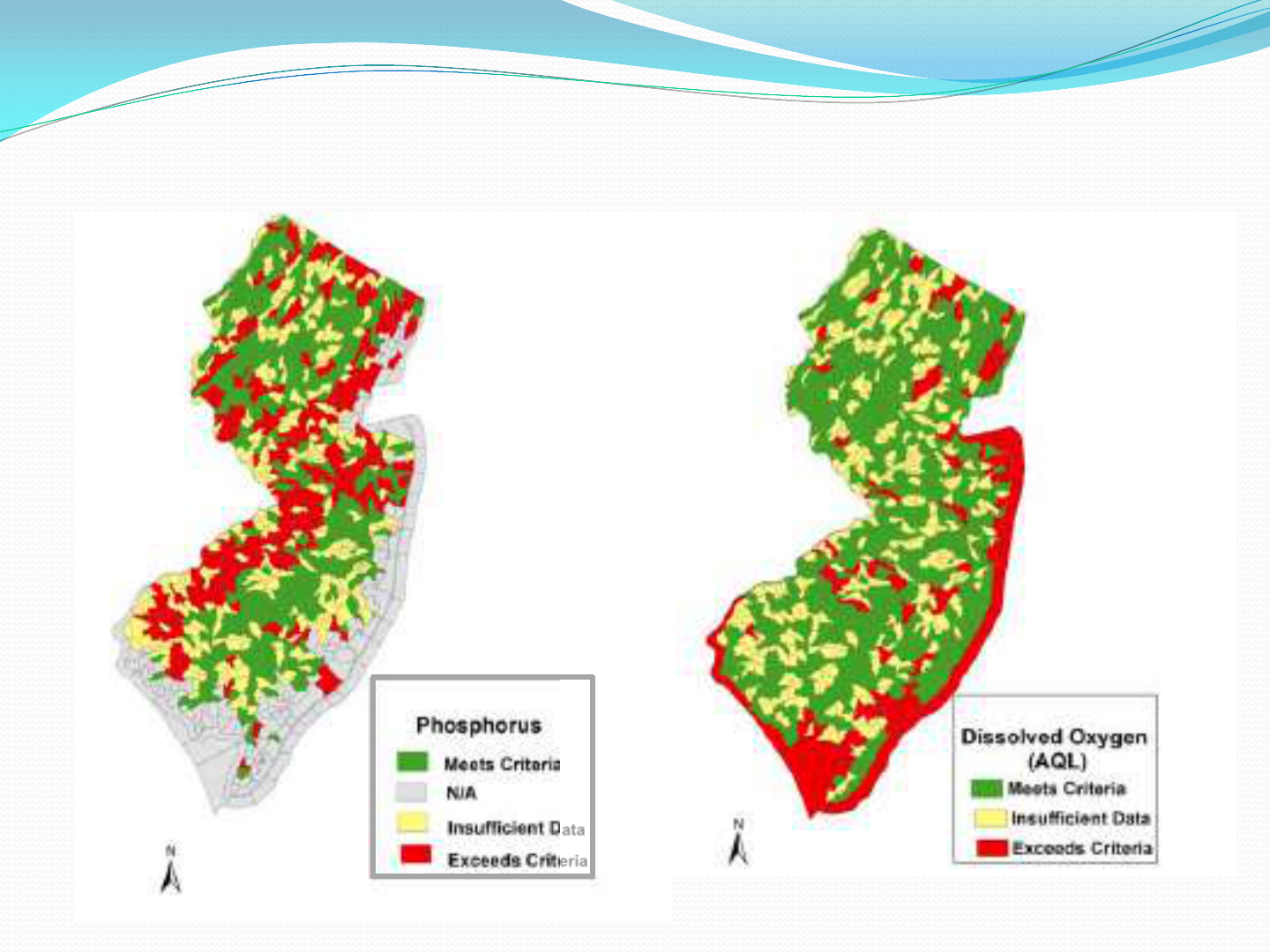
Phosphorus and DO Impairments in 2008
ata
eria
Nutrient Problems
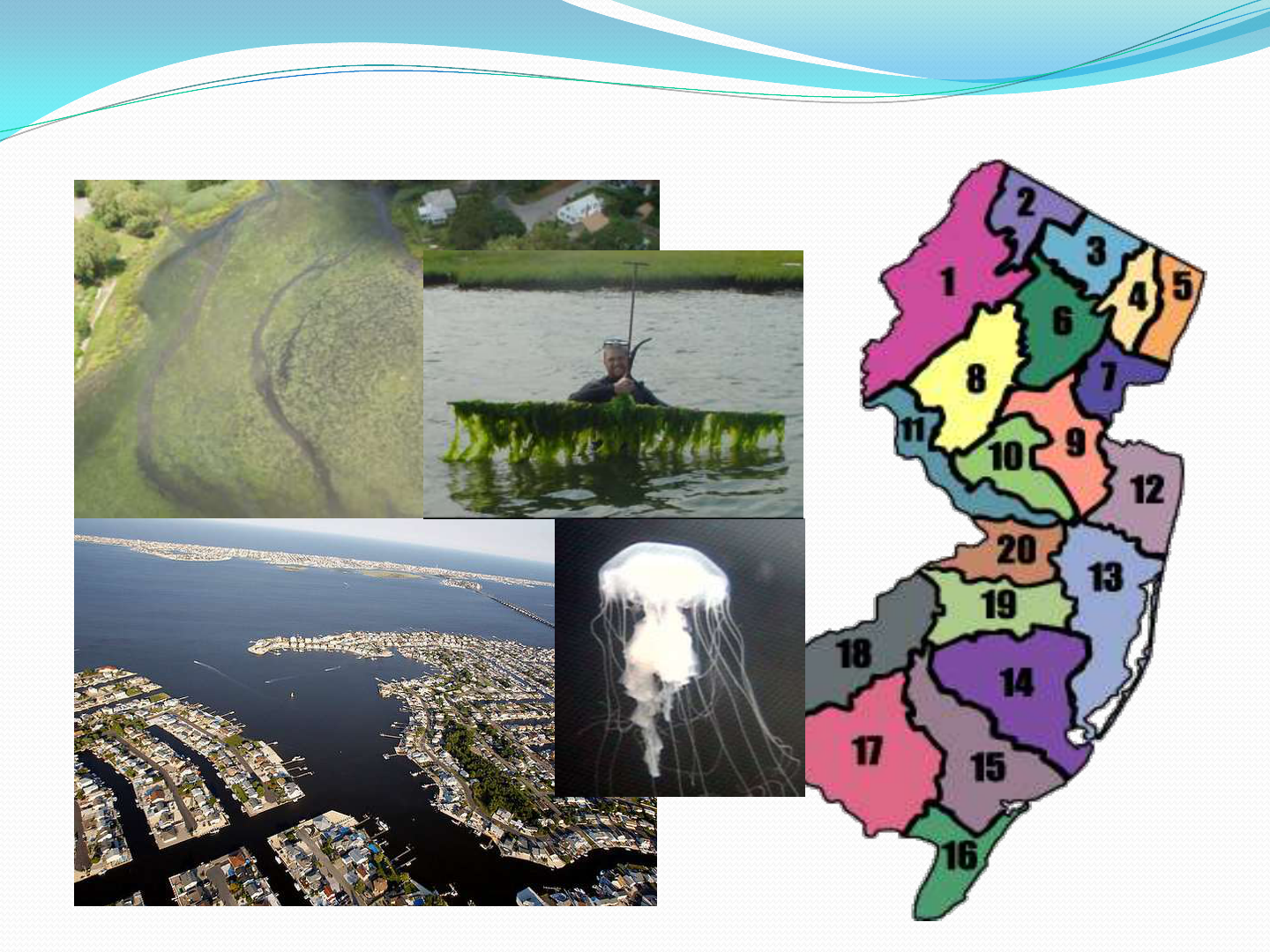
Eutrophication in Coastal Estuaries – Barnegat Bay
Nutrient Problems
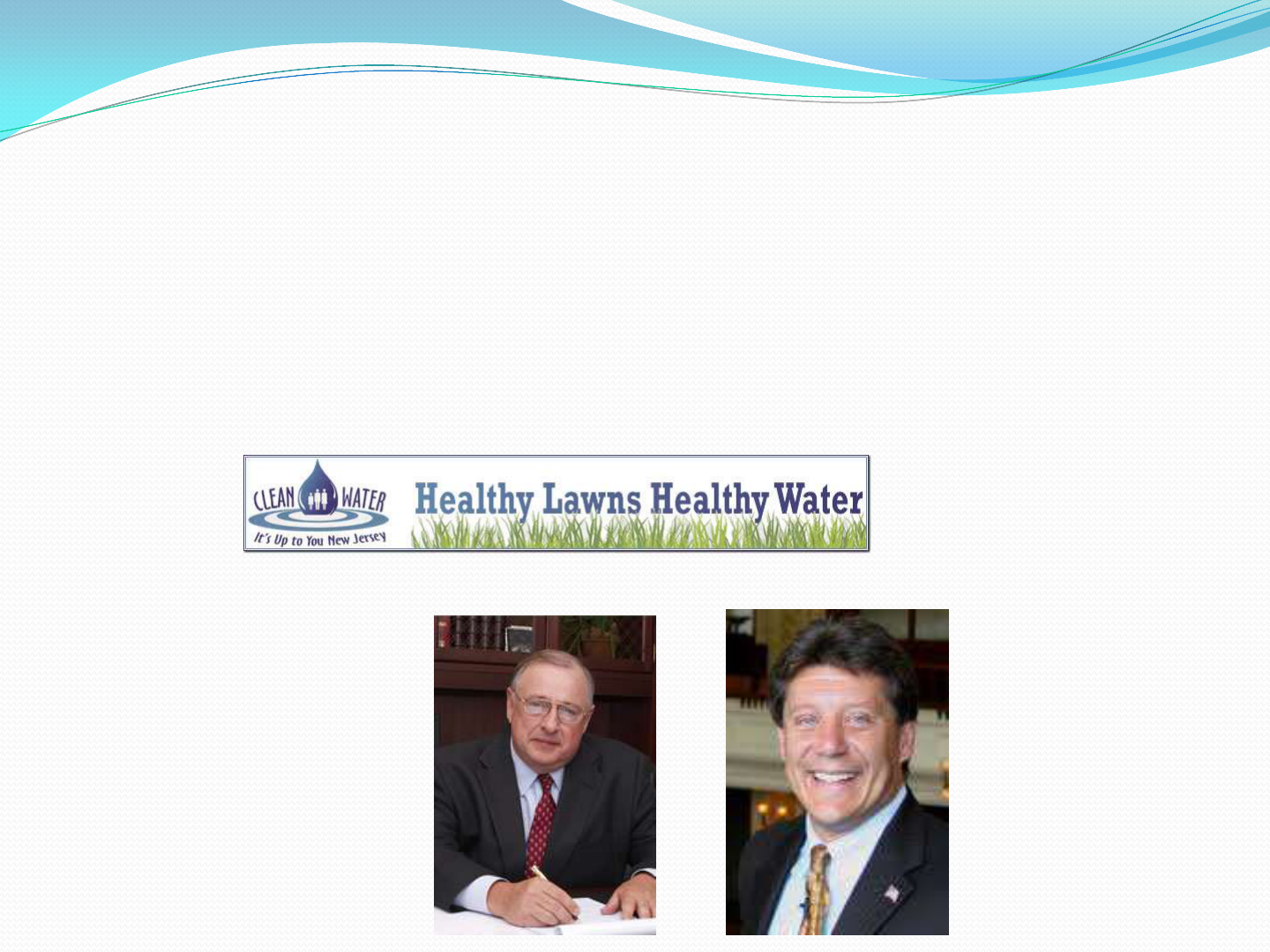
Looking for Solutions
P ban in other states (MN, WI, ME)
FL limits for both P and N, local
NJDEP Phosphorus Model Ordinance
Save Barnegat Bay’s Nitrogen Model Ordinance
.
Senator Smith Asm. McKeon
History of NJ Fertilizer Law

History of NJ Fertilizer Law
Governor Christie
Signs Bill into Law

Overview
Applies to residential and commercial application.
Exempts golf courses (but requires trained or certified
professional to apply fertilizer) and commercial farms.
Not allowed at certain times and places.
Sets state standards for use.
Requires certification and training for professionals.
Requires bag labels and contents to meet standards.
Sets fines for violations.
NJ Fertilizer Law
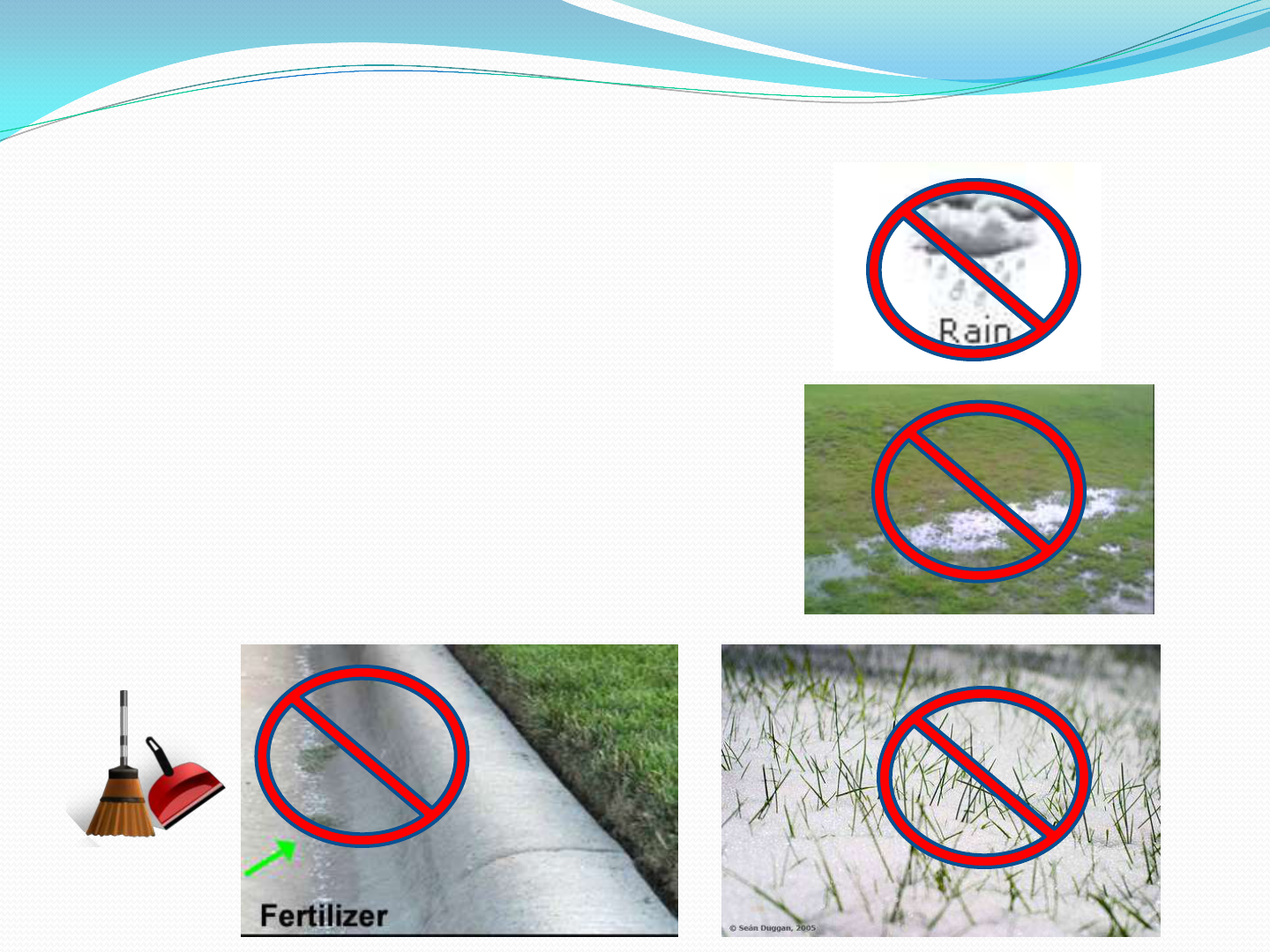
Took Effect in 2011:
Fertilizer applications not allowed:
Before or during heavy rains
Any time the soil is saturated or frozen
From: Dec. 1
st
- March 1
st
for professionals
Nov. 15
th
- March 1
st
for homeowners
On impervious surfaces; must cleanup
NJ Fertilizer Law
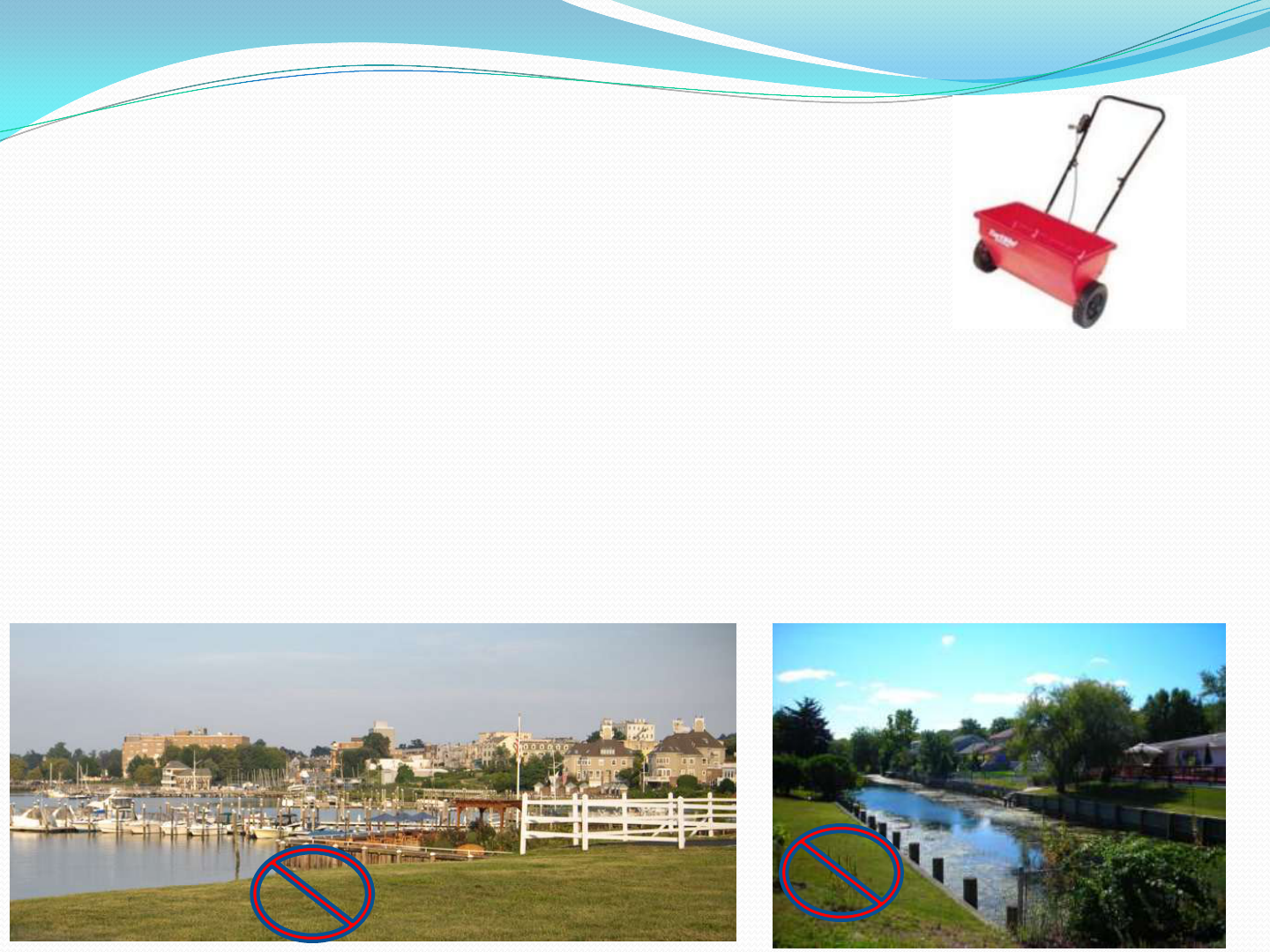
Took Effect in 2012:
Fertilizer applications prohibited:
Waterway buffers - within 25 ft of any waterbody, except where
special equipment is used, then the buffer may be reduced to 10 ft.
A professional applicator may apply one “rescue treatment”
annually to turf in a buffer as per rules above.
NJ Fertilizer Law

Took Effect in 2012:
Nitrogen Application Rate Limits
Professionals:
0.7 pound of water-soluble-nitrogen (fast release) per 1,000 sq. ft. and
1.0 pound total nitrogen per 1,000 sq. ft. per application
A 4.25 pounds per 1,000 sq. ft. per year
Consumers:
0.7 pound water-soluble-nitrogen (fast release) per 1000 sq. ft. and
0.9 pound total nitrogen per 1,000 sq. ft. per application
3.2 pounds per 1,000 sq. ft. per year
20 % slow release requirement (2013)
NJ Fertilizer Law

Took Effect in 2012:
Phosphorus Application Rate Limits
RULE:
• Zero phosphate allowed.
EXCEPTIONS:
• if prescribed by a soil test,
• when new turf is being established or repaired,
• or when using certain products with non-synthetic
components containing phosphorus (0.25 lbs available
phosphate limit)
NJ Fertilizer Law
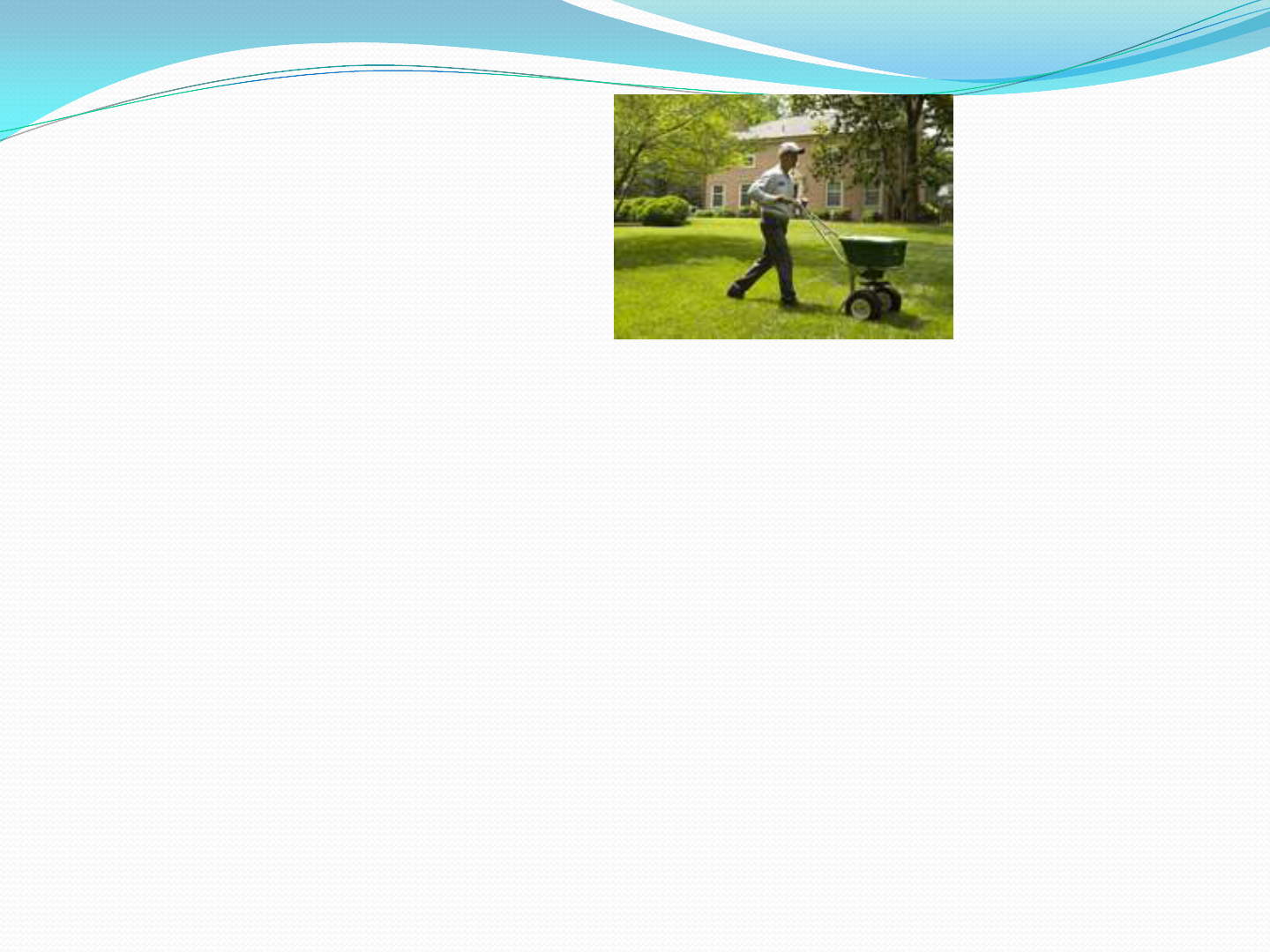
Took Effect in 2012:
Professional Training
All professional fertilizer applicators must be certified or
trained.
Both must receive annual training approved by Rutgers
University.
Certified applicators must pass a test and pay $75 fee.
Trained applicators must be supervised by a certified fertilizer
applicator and pay $25 fee.
NJ Fertilizer Law
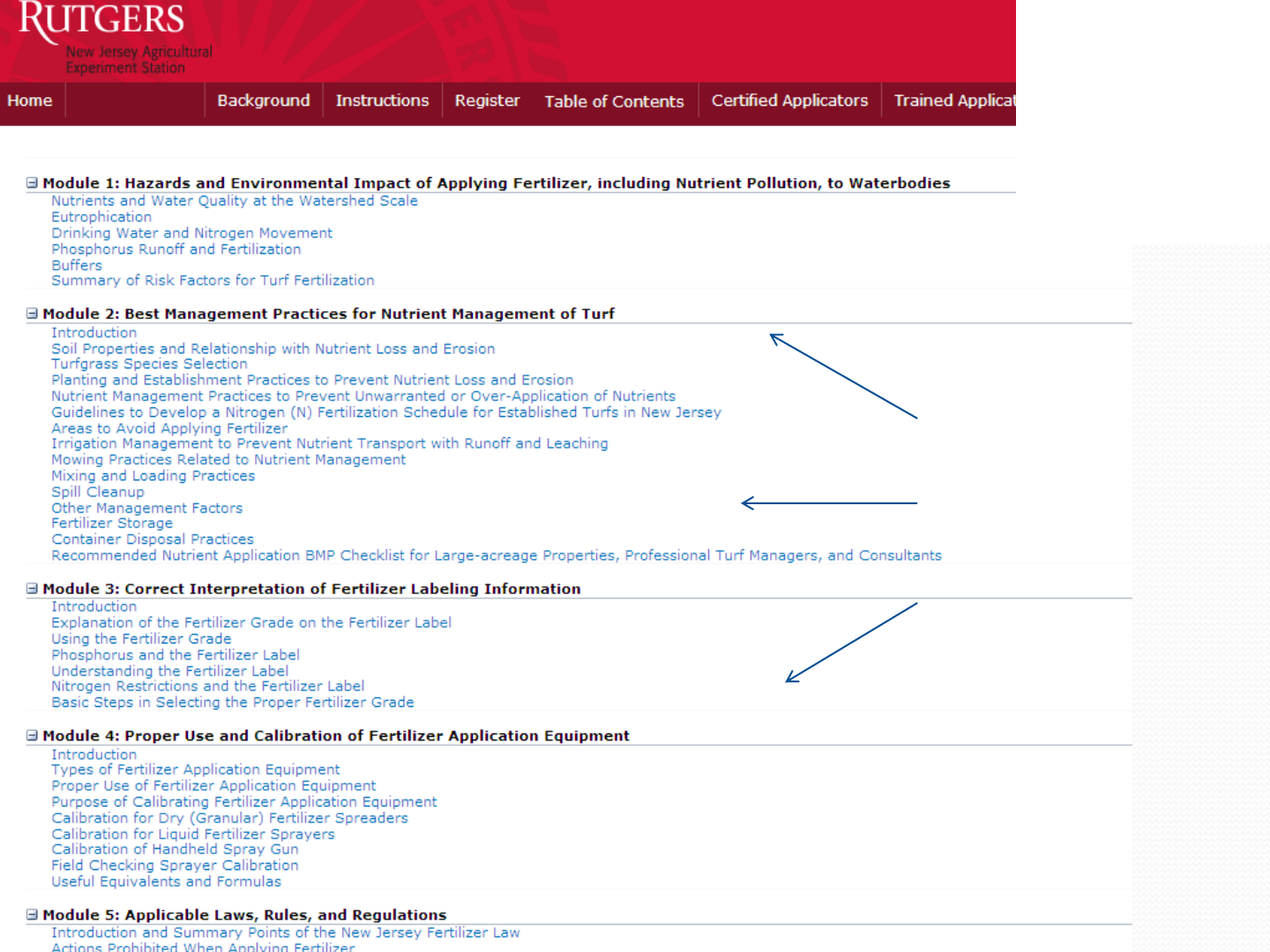
Broad-
based
training
topics
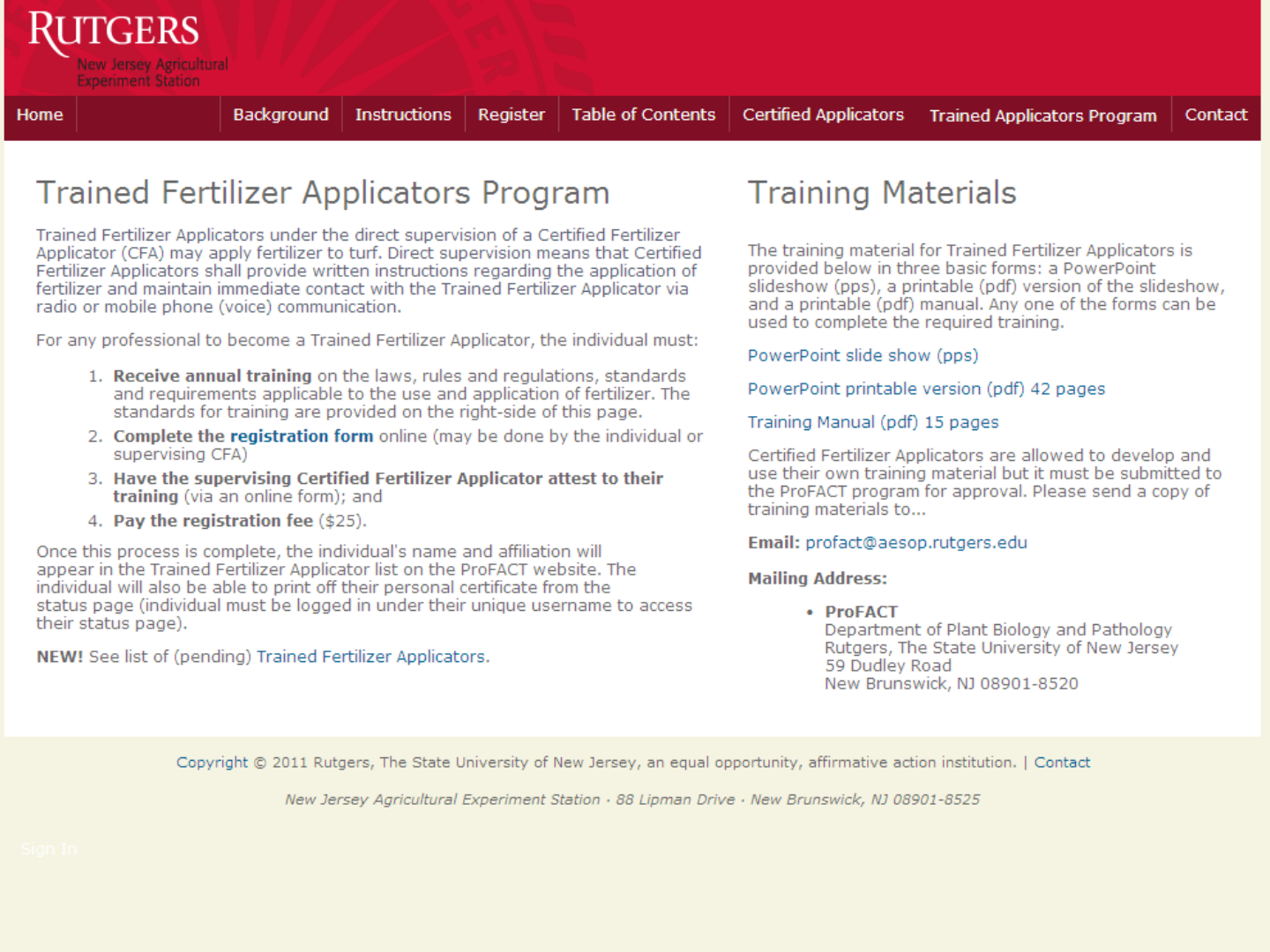
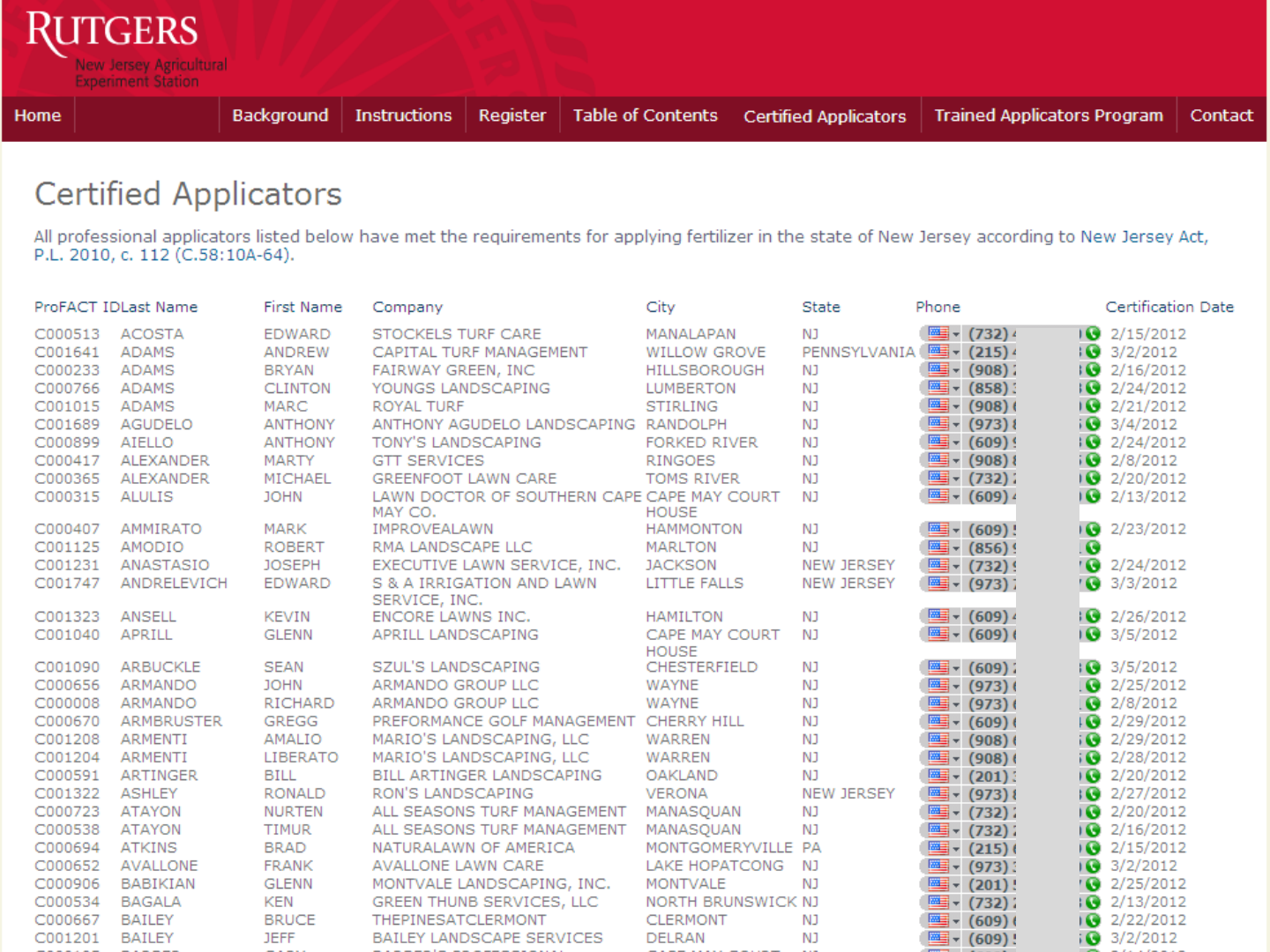
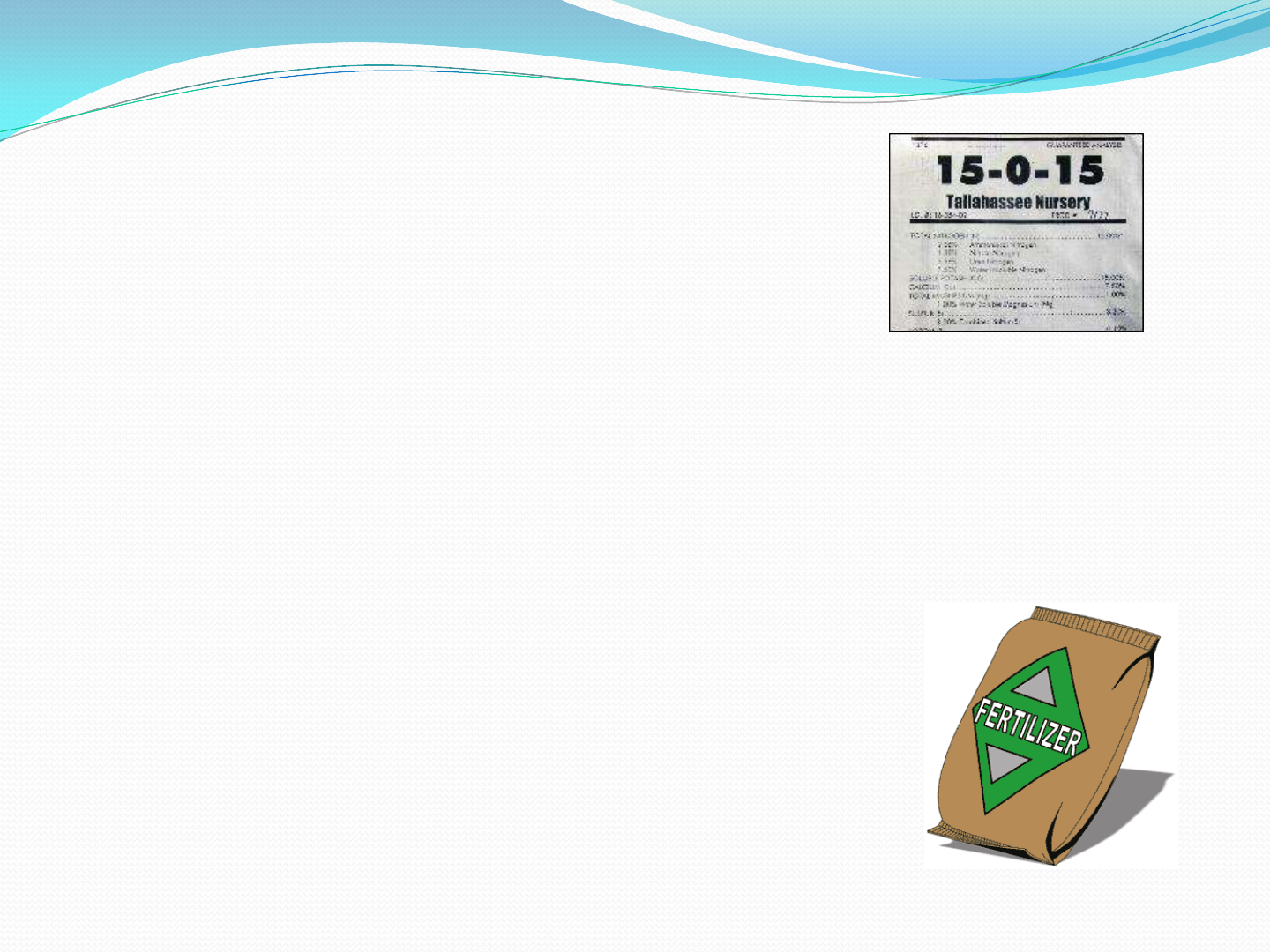
Final provisions take effect in 2013:
Label and content requirements
Consumer/retail products must have at least 20% of slow release
nitrogen – with no exceptions
Contain no phosphorus – with some exceptions
Have instructions consistent with application rate limits.
Follows AAPCO standard for turf fertilizer label.
NJ Fertilizer Law

Violations, Penalties
Any professional fertilizer applicator who violates the law
shall be subject to a civil penalty of $500 for the first
offense…
and up to $1,000 for the second and each subsequent
offense, to be collected in a civil action.
If the violation is of a continuing nature, each day during
which it continues shall constitute an additional, separate
and distinct offense.
NJ Fertilizer Law

Violations, Penalties
Non-professionals who violate the law may be subject to a
penalty, as established by municipal ordinance.
May be enforced by any municipality, county, local soil
conservation district or local health agency.
A local soil conservation district may institute a civil action to
enforce this act and to prohibit and prevent a violation of this
act.
NJ Fertilizer Law
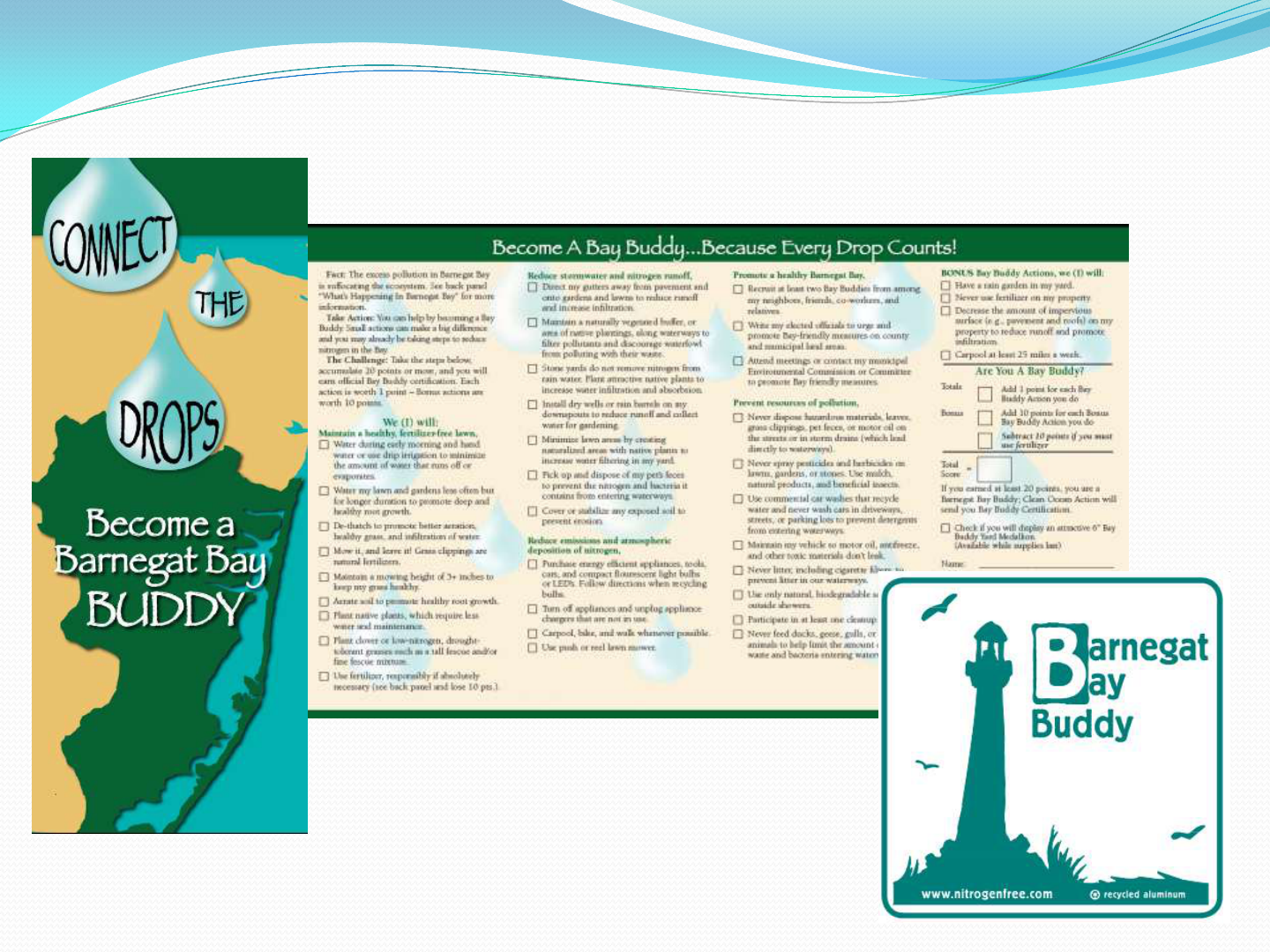
Importance of Education and Outreach
Implementation

Fertilizer Laws in Other States
Through 2009
ME, MN, WI - bans Phosphorus
FL - N and P limits for local areas with impairments
2010
Illinois - bans Phosphorus
Michigan - bans Phosphorus
New York - bans Phosphorus
2011
New Jersey - bans Phosphorus, limits Nitrogen, regulates content
Maryland - bans Phosphorus, limits Nitrogen – similar to NJ’s
Vermont - bans Phosphorus, requires 15% slow release Nitrogen , no limits
Virginia - bans Phosphorus
Washington - bans Phosphorus
2012 ?
Pennsylvania?, Connecticut?, more?
Implementation

Summary
NJ’s Fertilizer Law limits both phosphorus and nitrogen to reduce
non-point source pollution.
A certification and training program will help professionals keep
fertilizer on the lawn.
20% slow release nitrogen will help homeowners keep fertilizer on
the lawn.
Education and outreach are key to the law’s success.
More efforts are needed nationally to reduce nitrogen and
phosphorus loadings from fertilizer.

Acknowledgements
Dr. Jim Murphy at Rutgers University for sharing presentation
information and for his leadership in developing and overseeing
the certification program. He also has served as an important
resource on fertilizer and turf management.
Willie deCamp and Mike Borgatti at Save Barnegat Bay for getting
COA involved in the development of the fertilizer law.
The Clean Ocean Action Team – who successfully advocated for
the bill and garnered community support and to Sean Dixon, COA’s
coastal policy lawyer, who has had a critical role in negotiations
and implementation of the law.
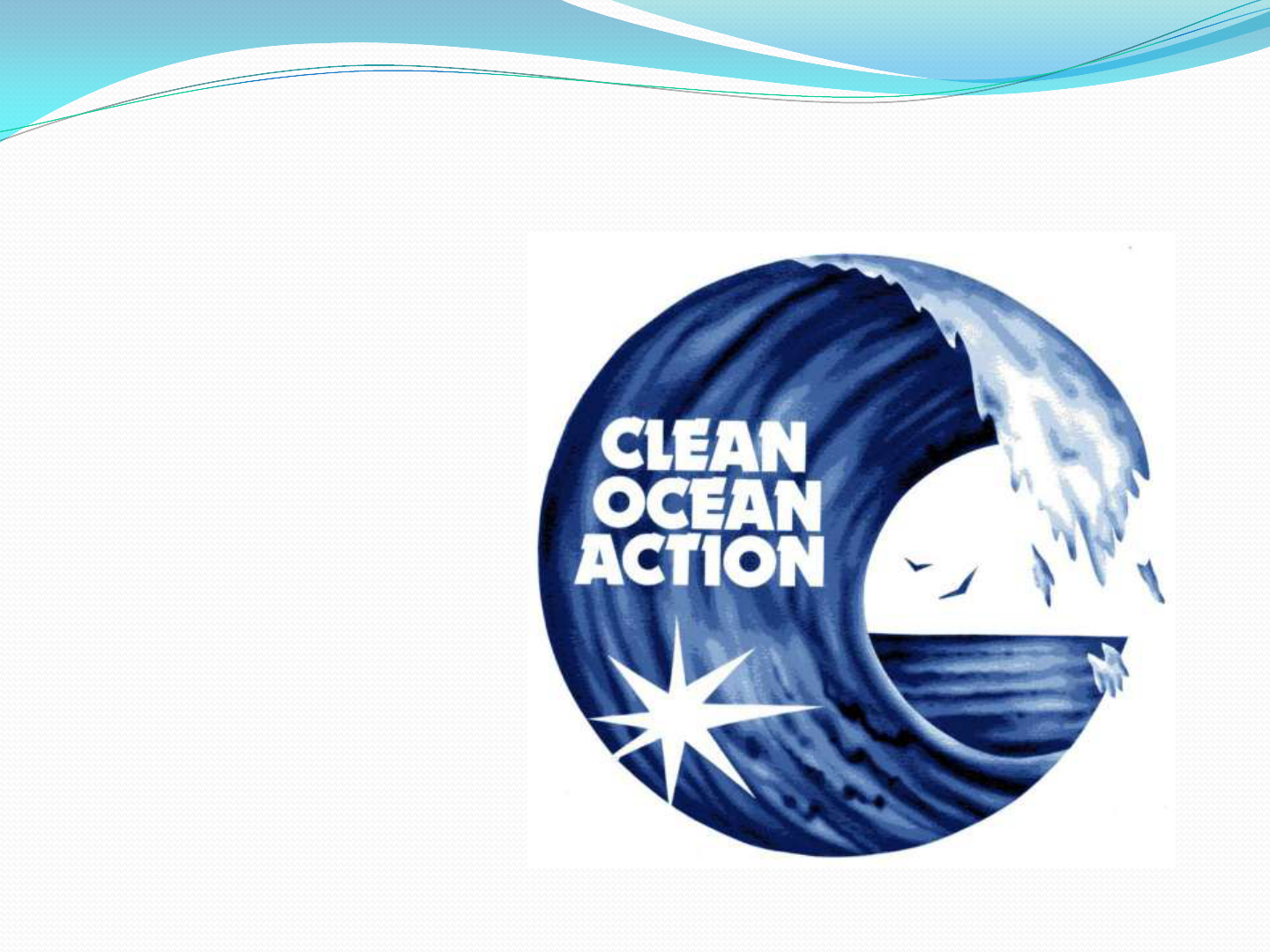
Questions?
Dr. Heather Saffert
Staff Scientist
Clean Ocean Action
18 Hartshorne Drive
Highlands, NJ 07732
Science@CleanOceanAction.org
(732) 872 - 0111
